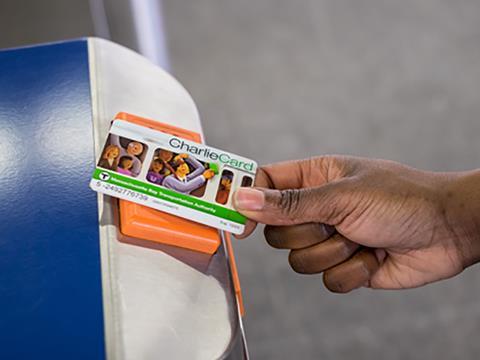
USA: Massachusetts Bay Transportation Authority’s Fiscal & Management Control Board has approved changes to the public-private partnership contract for a consortium of Cubic Transportation Systems and John Laing to modernise its fare collection systems.
MBTA said the amendments would ensure ‘an achievable and enforceable schedule’ for providing technology that would ‘allow the system to adapt to future changes in ridership and to implement new kinds of fare options.’
The capital cost of the project is now put at $723·3m, plus $212·1m of operations and maintenance payments over 10 years.
MBTA said that while the total sum of $935·4m represented an increase of $212·1m on the value of the contract approved in 2018, the deal ‘remains cost-effective’. The upgraded system is ‘projected to collect over $8bn in fare revenue during its first 10 years of operation’.
Taking account of feedback from users, advocates and policy makers, the revised approach is intended to offer more customer-focused upgrades including better access to ticket machines. The new schedule provides more time for testing, installation and customer migration, while the agreement includes provisions that reduce the risks to MBTA and allow it to benefit from future changes within the payment industry.
‘Critical to this project’s success is outreach, and the level of engagement we’ve received indicates just how important the future of MBTA fare collection is to our customers’, said Chief Transformation Officer Ron Renaud on April 27.
The amended contract is part of MBTA’s wider Fare Transformation initiative which includes ‘a more robust, thoughtful network of retail sales outlets and fare vending machines’, making it easier to obtain CharlieCard smart cards, elimination of the cash payment surcharge in 2021, all-door boarding on MBTA buses and at Green Line light rail surface stops, and integrating ferries and the entire commuter rail network into the CharlieCard system.
‘Under this programme reset, we’ll be able to deliver one system that can be used across all modes that meets the needs of our customers today, and has the ability to adapt to future needs’, said MBTA General Manager Steve Poftak. ‘Especially in light of recent changes to daily life caused by Covid-19, it’s more important than ever to move toward a dynamic system with contactless options that can withstand major changes to conditions that would otherwise undermine a legacy system of fare collection.’



